For holiday-time reading and gift-giving, here are 21 poetry collections recommended by 19 poets – Hank Lazer, Ange Mlinko, Tony Hoagland, Tara Betts, Lisa Russ Spaar, Philip Metres, Ken Chen, Julie Sheehan, Rusty Morrison, Joel Brouwer, Todd Boss, Robert Cording, Elaine Sexton, Leslie Harrison, Deborah Woodard, Aaron Belz, Don Bogen, Amanda Auchter, and Aaron Baker.
* * * * * * * * * *
Recommended by Hank Lazer
is music, Selected Poems, by John Taggart (Copper Canyon)
Yes indeed John Taggart’s is music: Selected Poems IS most emphatically a great occasion. Taggart may be the finest living American poet you have either not heard of or perhaps not read in a sustained way. This surprising selection -– surprising because it is published by a “major” press, Copper Canyon, after Taggart’s many books of poetry (fourteen in all) have appeared from small and independent presses -– with an appreciative, elliptical introduction from C. D. Wright, is large enough in format (both number of pages and page size) to include several of Taggart’s longer poems, including the masterful “The Rothko Chapel Poem.”
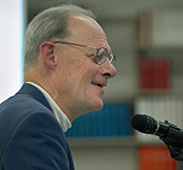 Nearly seventy years old, born in Perry, Iowa, the son of a preacher, though he edited the magazine Maps, Taggart’s own poetry is somewhat hard to place, at least in terms of literary movements and groups. One might call him a poet extending the work of the Objectivists (about whom Taggart as critic has written with care, intelligence, and great insight) and the music of poets such as Zukofsky (though more accurately his kinship is with the musicality of another great “unknown” American poet, Theodore Enslin, a longtime friend of Taggart). Or one might begin to list the range of affinities that his poetry embraces -– John Coltrane, Thelonious Monk, Marvin Gaye, William Bartram, Marianne Moore, Mark Rothko, Henry David Thoreau, Aretha Franklin, Thomas Dorsey. Or, one might acknowledge the scrupulous severity of Taggart’s eye, ear, spirituality, and ethics. (He is, for better and for worse, the most honest poet I know.) Or, one could note his stubborn independence and isolated existence for many years in rural Pennsylvania.
Nearly seventy years old, born in Perry, Iowa, the son of a preacher, though he edited the magazine Maps, Taggart’s own poetry is somewhat hard to place, at least in terms of literary movements and groups. One might call him a poet extending the work of the Objectivists (about whom Taggart as critic has written with care, intelligence, and great insight) and the music of poets such as Zukofsky (though more accurately his kinship is with the musicality of another great “unknown” American poet, Theodore Enslin, a longtime friend of Taggart). Or one might begin to list the range of affinities that his poetry embraces -– John Coltrane, Thelonious Monk, Marvin Gaye, William Bartram, Marianne Moore, Mark Rothko, Henry David Thoreau, Aretha Franklin, Thomas Dorsey. Or, one might acknowledge the scrupulous severity of Taggart’s eye, ear, spirituality, and ethics. (He is, for better and for worse, the most honest poet I know.) Or, one could note his stubborn independence and isolated existence for many years in rural Pennsylvania.
Much of Taggart’s poetry does not lend itself to pithy quotation. His characteristic musicality builds, like the music of Steve Reich, by subtle modulation, variation, and accumulation. Taggart’s work in longer poems such as “The Rothko Chapel Poem” constitutes a maximal lyricism -– a highly lyrical poetry that depends upon a deeply extended, carefully variable music. You can get a taste for it from the beginning of one of his homages to John Coltrane, “Giant Steps,”
To want to be a saint to want to be a saint to want to
to want to be a saint to be the snake-tailed saint one to want to
be snake-tailed with wings to be a snake-tailed saint with wings to
want to be a saint to want to awaken men wake men from nightmare.
Taggart’s is a stammering eloquence, a redemptive descent into the fundamentals of the phrases that might make for an uplifting music, as in the second stanza of “Giant Steps,” which stands equally as a description of Coltrane’s obsessive knowledge and practice of the scales and of Taggart’s practiced phrasal compositions:
To go down to raise to go down to raise to go to go down the
ladder to go down as taught as dance steps taught by the master as
taught to dance to step-dance to dance with giant steps to go to dance to
step-dance to dance with giant steps as taught by the master to
dance to go down the ladder to go down to raise men from nightmare.
Or, one might listen carefully to the beginning of “Peace on Earth,” a painfully compassionate meditation on the Vietnam era use of napalm, where the core line that emerges is “to lift to lift up to lift without/ effort,”
To love to love those to love those who
are in to love those who are in a condition
in a condition
of hiding to love those who are in
a condition of hiding to
love those as children as the
valiant children who have gone into hiding
children who hide in a house from the roaring.
As in his remarkable poem, a most intriguing fusion, “Henry David Thoreau / Sonny Rollins,” Taggart too has “fled the clubs/ nightclubs the meccas of smoke clatter/ and chatter amid smoke murmur and murmur of assignation” for his years “alone with the alone” in order to find, hear, and write a new music. It is a spiritually exact and exacting music, a new kind of spiritual, tempered by Taggart’s equal devotion to the world of precise fact learned through the tedious exactness of gardening in a difficult rural terrain. Taggart’s is music is a music, is many musics, that can re-tune how you hear, what you hear, and that can expand the range of the beautiful, in its pain, in its urgency, in its compassion, as few others of our contemporaries can.
[Published October 1, 2010. 353 pages, $19.00 paperback.]
Hank Lazer’s most recent books are Portions (poems, Lavender Ink, 2009) and Lyric & Spirit: Selected Essays 1996-2008 (Omnidawn, 2008).
* * * * * * * * *
Two Titles Recommended by Ange Mlinko
Maggot, poems by Paul Muldoon (Farrar Straus Giroux)
I used to read Ashbery when I wanted to gauge the limits of what contemporary poetry could do formally; now I read Muldoon for the same reason. So it’s no big surprise to me that Muldoon has a sestina dedicated to Ashbery in his new book — and that it has the tone of rueful world-weariness I imagine old maestros strike with each other in private:
… Sometimes change for the sake of change
might not be the worst flag
under which to sail as when maggots, for their part,
are content to be in a crowd scene from which they’ll nonetheless depart
about as gracefully as Swift would retire
from a debate on the slave trade. It seems all youthful spirits flag
where they were once so volatile.
(“Capriccio in E Minor for Blowfly and Strings”)
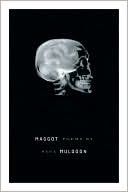 A capriccio — related to our “caprice”— is “a thing or work of fancy,” the OED tells me; “a sudden sportive or fantastic motion; a prank, trick, caper.” Also a musical composition “of lively character, and more or less free in form.” Compare with the alternate definitions of maggot: “fancifulness,” “formerly used in the names of many dance tunes,” “a whimsical or capricious person.” Not to mention “a soft-bodied apodous larva, esp. of a housefly, blowfly … formerly supposed to be generated by decay.”
A capriccio — related to our “caprice”— is “a thing or work of fancy,” the OED tells me; “a sudden sportive or fantastic motion; a prank, trick, caper.” Also a musical composition “of lively character, and more or less free in form.” Compare with the alternate definitions of maggot: “fancifulness,” “formerly used in the names of many dance tunes,” “a whimsical or capricious person.” Not to mention “a soft-bodied apodous larva, esp. of a housefly, blowfly … formerly supposed to be generated by decay.”
Sure, the book is concerned with age and decay, but it’s lively and violent in the way it yokes disparate narrative threads together and dismantles our idioms (“change for the sake of change”—the change you throw in the hat of a musician performing a maggot, say). It pretends to be sheer verbal entertainment while building in certain redundancies in rhyme and etymology that point to a serious purpose: to out-corrupt corruption (of the corpus, of course). By pretending to be ephemera (which is also the scientific name of the mayfly), the poems do fly. This is, to me, precisely the kind of magical thinking poems are born for.
[Published August 31, 2010. 144 pages, $24.00 hardcover]
Now, As You Awaken, poems by Mahmoud Darwish, translated from the Arabic by Omnia Amin and Rick London (Sardines Press)
Earlier this year I was talking with some American poets about Beirut when the subject of Mahmoud Darwish came up; the publication of If I Were Another, a collection of longer poems published by FSG, was still a recent event. One of the poets I was with reluctantly admitted that she found Darwish’s work to be “vague.” She didn’t get it, and I understood what she meant. The oracular repetitions of emblems like “the dead,” “the night,” “the doves,” etc., seem quaint to us (they may fall under the dubious rubric “visionary”) and an abundance of phrases like “the willow of distant wind” recall “dim lands of peace,” the phrase Ezra Pound mocked in his list of Modernist “Don’ts” in 1918.
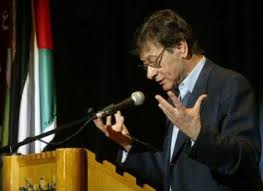 But there was another Darwish I was carrying around with me in Beirut: the Darwish of a small chapbook from Sardines Press in San Francisco: Now, As You Awaken. The translators, Omnia Amin and Rick London, chose twenty poems from Darwish’s 2004 volume Don’t Apologize for What You’ve Done. They explore his usual themes: “you are not you and/home is not home.” But I return to them more often, and with more understanding, than I do to his epic works. I return to “The cypress is in pieces like a shattered minaret” or “There’s a sea for me in a deserted theater/in Beirut.” In the poem titled “It is night and she is lonely,” the narrator is dining alone in a restaurant, watching another solitary diner, a woman; he aches to talk to her, but “Love has become an idea.” You could say, with relief, that these melancholy lyrics are less visionary than speculative. Exile may heighten the experience of abstraction (“home” itself becomes the chief abstraction) but the reader is relieved that the shattered cypress is really in the road; that deserted theater in Beirut exists.
But there was another Darwish I was carrying around with me in Beirut: the Darwish of a small chapbook from Sardines Press in San Francisco: Now, As You Awaken. The translators, Omnia Amin and Rick London, chose twenty poems from Darwish’s 2004 volume Don’t Apologize for What You’ve Done. They explore his usual themes: “you are not you and/home is not home.” But I return to them more often, and with more understanding, than I do to his epic works. I return to “The cypress is in pieces like a shattered minaret” or “There’s a sea for me in a deserted theater/in Beirut.” In the poem titled “It is night and she is lonely,” the narrator is dining alone in a restaurant, watching another solitary diner, a woman; he aches to talk to her, but “Love has become an idea.” You could say, with relief, that these melancholy lyrics are less visionary than speculative. Exile may heighten the experience of abstraction (“home” itself becomes the chief abstraction) but the reader is relieved that the shattered cypress is really in the road; that deserted theater in Beirut exists.
[Published January 5, 2007. 32 pages. Ed. Note: Roger Snell, the publisher of Sardines Press, tells us that the title is out of print. Used copies may be found here and there, though the press run was only 150 copies. But good news: the entire chapbooks is available by clicking here.]
Ange Mlinko’s most recent book of poems is Shoulder Season (Coffee House Press). She writes poetry criticism for The Nation, The London Review of Books, and Poetry.
* * * * * * * *
Recommended by Tony Hoagland
Selected Poems, by Mary Ruefle (Wave Books)
Duende, described by Garcia Lorca in his well-known essay by that name, is not such a common aesthetic asset in this country. Of all the achievements of modern American poetry, the stark, ferocious existential quality of dancing with death is not one of them. Dickinson has it, and Plath, Franz Wright, and Louise Glück, and there are others, but the number is not great. Perhaps it has to do with our relative youth, our can-do hubris, or a temperamental resistance to tragedy as a world view.
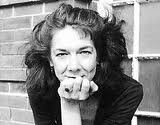 Mary Ruefle’s work, in this context, is exceptional for being written at the pitch of extremity. Her poems are full of high dives and lunges, dramatic sacrificial gestures and extravagant claims. Her fugue states are extreme loneliness, solitary joy, religious longing, droll contemplations of fate … Suicide and rapture stand in the background like network sponsors.
Mary Ruefle’s work, in this context, is exceptional for being written at the pitch of extremity. Her poems are full of high dives and lunges, dramatic sacrificial gestures and extravagant claims. Her fugue states are extreme loneliness, solitary joy, religious longing, droll contemplations of fate … Suicide and rapture stand in the background like network sponsors.
In his essay Lorca illustrates duende by the example of flamenco dancing, stamping and twisting in a gestural idiom of Eros and death. The analogy is apt for Ruefle’s distinctively theatrical poems, at once stylized and intense, even melodramatic with feeling. The poem “Marked” begins:
Because I was not marked.
Because I had neither fame
nor beauty nor inquisitiveness.
Because I did not ask.
Because I used my hands.
Because I ate potatoes in dirty jackets
fished from the rocks.
Because I used a pail at night.
Because when Betty C. explained
to Betty D. the nature of the problem
I did not understand.
Because I had no silver.
Even when Ruefle is fatalistic, her delivery has great panache, which at once dignifies the speaker with an air of heroic detachment, and inflects the narrative with cosmic playfulness. Such a typical blend of mask and authority is audible in the opening of “Trust Me”
What can be discussed in words
I beg to state in brief.
A man has only one death:
it may be as light as goose down
or as heavy as a fatted hog.
Gingerly, the flowers open
and are crushed in the vat …
This is the rhetorical lineage of Stevens and Moore– part tragic aesthetician, part comic metaphysician. Like those poets, Ruefle’s poems are linguistically adept enough to strike postures. Like them, she can come off either as decadent or dignified, and she shares their skill-set — irony, hyperbole, paradox, sincerity, droll understatement, self mockery; moves that make them fun poets as well as important ones. Here is the opening of “Glory”
The autumn aster, those lavender ones,
and the dark-blooming sedum
are beginning to bloom in the rainy earth
with the remote intensity of a dream. These things
take over. I am a glorifier. Not very high up
the vocational chart, and I glorify everything I see,
everything I can think of. I want ordinary men and woman
brushing their teeth, to feel the ocean in their mouth.
I am going to glorify the sink with toothpaste spat in it
I am going to say it’s a stretch of beach where the foam
rolls back and leaves little shells …
 There is more to say about this poet than I have space for here. In the small world of poets, Ruefle is famous among those who know a lightning rod. After ten collections, Ruefle’s Selected Poems, in this beautiful book from Wave Press, offers readers a chance to catch on to one of the most distinctive talents of our time, one of the few who can genuinely startle. That her work has not yet won any major award is absurd. Ruefle is clearly one of the best American poets writing, and her body of work is remarkable for its spiritual force, intelligence, stylistic virtuosity, and adventurousness.
There is more to say about this poet than I have space for here. In the small world of poets, Ruefle is famous among those who know a lightning rod. After ten collections, Ruefle’s Selected Poems, in this beautiful book from Wave Press, offers readers a chance to catch on to one of the most distinctive talents of our time, one of the few who can genuinely startle. That her work has not yet won any major award is absurd. Ruefle is clearly one of the best American poets writing, and her body of work is remarkable for its spiritual force, intelligence, stylistic virtuosity, and adventurousness.
[Published August 17, 2010. 176 pages, $24.00 hardcover]
Tony Hoagland’s fourth book of poems, Unincorporated Persons in the Late Honda Dynasty, was published this year by Graywolf. He teaches at the University of Houston.
* * * * * * * * *
Recommended by Tara Betts
Amnesiac, poems by Duriel Harris (Sheep Meadow Press)
Harris’ first book Drag (Elixir Press, 2003) was a riveting and visceral collection, and her second volume Amnesiac exceeds the bar set by her skillful debut. Prefaced by the epigraph from the end of Olga Broumas’ poem “Artemis,” these poems grapple with alienation and disassociation from the body and humanity, particularly through forgetting. Forgetting becomes a kind of violence that abets physical acts of brutality, but the progression of the book leads to the concluding poem, “interval” where a body begins to see itself again: “It would be/Half-smiling, seeming to see something/chained, just inside just underneath.”
 Harris’ poems take advantage of white space in a spectrum that ranges from sparse to sprawling. She utilizes the narrative and the lyric in inventive ways by embedding some of the poems within sheet music, visual art, and multiple columns to vary the monotony of structure present in some collections and offers a new way for this distanced voice to take on varied shapes. “‘Pourmore for more PoMoFunk dunk, dun paramour’ or ‘Duriel’s Bootybone Scattergram: scatty pas de quatre in one act’” is a four-column poem that can be read in myriad directions while effectively conveying the overall tone of the book. This poem, in particular, is not exempted from the numerous wellsprings that Harris draws from to elaborate on this overarching theme. There are references to geology, prayer, and war, but there are also connections with the blues, the African American literary canon, and “Guillén, Nicolás” — a 13-page poem that draws connections between women, snakes, and the Afro-Cuban poet.
Harris’ poems take advantage of white space in a spectrum that ranges from sparse to sprawling. She utilizes the narrative and the lyric in inventive ways by embedding some of the poems within sheet music, visual art, and multiple columns to vary the monotony of structure present in some collections and offers a new way for this distanced voice to take on varied shapes. “‘Pourmore for more PoMoFunk dunk, dun paramour’ or ‘Duriel’s Bootybone Scattergram: scatty pas de quatre in one act’” is a four-column poem that can be read in myriad directions while effectively conveying the overall tone of the book. This poem, in particular, is not exempted from the numerous wellsprings that Harris draws from to elaborate on this overarching theme. There are references to geology, prayer, and war, but there are also connections with the blues, the African American literary canon, and “Guillén, Nicolás” — a 13-page poem that draws connections between women, snakes, and the Afro-Cuban poet.
Whether Harris’ work describes the actual effects of amnesia, the slow awakening sketching awareness in self-portraits, or travel of the pain-body growing and feeding off pain within humans, Amnesiac reinforces how people must continually remind themselves of their humanity and that it exists inside the bodies of others as well.
[Published August 31, 2010. 90 pages, $12.95 paperback.]
Tara Betts is the author of Arc & Hue (Aquarius Press/Willow Books, 2009). Her work has appeared in Crab Orchard Review, Ninth Letter, PMS, Callaloo, and several anthologies. She teaches creative writing at Rutgers University and is co-editing an anthology of Bop poems with Afaa M. Weaver.
* * * * * * * * * *
Recommended by Lisa Russ Spaar
Raptus, poems by Joanna Klink (Penguin)
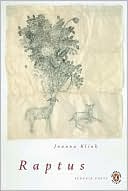 In Raptus, Joanna Klink’s third collection of poems, heartbreak and the end of a long-term relationship extend this original poet’s body of beautiful work with an exactingly pursued sense of the thievery and bravery of aftermath, and of the emotional stakes involved when two temperamentally solitary lovers (characterized by their “[i]nseparable / loneliness”), enraptured, fused, and broken apart by desire’s invasion, must now “in their separate dwellings, their bodies / Feel the next season come” without the sense of having “someone to whom / To tell it.” How to remain, the poet asks, “quiet on earth // and bear it, the war we make inside / what is”?
In Raptus, Joanna Klink’s third collection of poems, heartbreak and the end of a long-term relationship extend this original poet’s body of beautiful work with an exactingly pursued sense of the thievery and bravery of aftermath, and of the emotional stakes involved when two temperamentally solitary lovers (characterized by their “[i]nseparable / loneliness”), enraptured, fused, and broken apart by desire’s invasion, must now “in their separate dwellings, their bodies / Feel the next season come” without the sense of having “someone to whom / To tell it.” How to remain, the poet asks, “quiet on earth // and bear it, the war we make inside / what is”?
Ever a poet of closely keyed meditation on the subjective imagination in the act of discovering its own strange otherness, Klink moves with new depth into her I/eye’s relationship to an ultimately unplunderable, distinct “you,” an entity discreet from the speaker’s own conjuring, her wishing. However spectral the lover has been and becomes in the poems, “If you tense / against me,” writes the speaker in “Poetry,” “there is history.” There is the lyric poem.
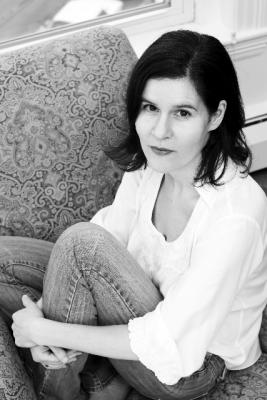 At the heart of this collection is “The Radiant.” A kind of cosmology, this poem conflates the “flick of the conscience” with the motions of the physical universe, weaving the “story” of the speaker and her lost love into a myth about the evolution of the perceived world that evokes and then transgresses the idea of the primal Garden, recounting a new genesis. Seeking a source for the pain of being alive, the speaker imagines “[s]omething that came from far within / and far off. In the lake beds, in the vegetable beds. / It was enough to loosen the bones of the moon. / I was living here, and you were living here – / we had everything we needed.”
At the heart of this collection is “The Radiant.” A kind of cosmology, this poem conflates the “flick of the conscience” with the motions of the physical universe, weaving the “story” of the speaker and her lost love into a myth about the evolution of the perceived world that evokes and then transgresses the idea of the primal Garden, recounting a new genesis. Seeking a source for the pain of being alive, the speaker imagines “[s]omething that came from far within / and far off. In the lake beds, in the vegetable beds. / It was enough to loosen the bones of the moon. / I was living here, and you were living here – / we had everything we needed.”
Yet as the poem accrues its rich catalog of questions (“Who were we then?”), its beauties and losses, its mortal passages through time and generations (“They all had names / and those names are passing through us, / hairclips and sweaters / shoelaces and charms, / raw quiet, bird-quiet, beaks and fine bones”), the speaker realizes that
. . . you will not be released from the dream
whose permanence is unease,
so that every story you tell from now on must include it,
and every body you love from now on must include it,
no matter what they tell you …
As Klink brings “The Radiant” to a centrifugal close, she ponders the “others” of the world, “like us, growing in beauty at the end of the day.” She acknowledges that “when the truth appears it will be strange,” but also that “what is desired is also possible, / far within and far off –.” Is Spring, re-birth, a lie, especially with no conspirator with whom to mark the change? No matter, Klink suggests in “Wonder of Birds.” Because of this uncertainty, “We need each other more.”
[Published May 25, 2010. 80 pages, $18.00]
Lisa Russ Spaar’s most recent book of poems is Satin Cash (Persea, 2008). She teaches writing at the University of Virginia. Please visit her new weekly poetry blog at The Chronicle of Higher Education website.
* * * * * * * * * *
Recommended by Philip Metres
The Earth in the Attic, poems by Fady Joudah (Yale)
I first met Fady Joudah online, in his role as editor for the Radius of Arab American Writers site, and was struck by his email address — which was not his name, but “isdoud.” What was this isdoud, I wondered. Was he referencing that he’s “a dude”? — Fady is, indeed, a dude. It turned out to be the name of a village in what was/is Palestine, with ancient roots going as far back as the Canaanite peoples, thousands of years ago. The village was where his parents came from, before their expulsion in 1948. Now, it is a ruin of a few remaining stone buildings — the mosque, a wall of a school where his father once attended. How strange, to be carrying his exiled home as email address, a place that exists as a cyberlink to wherever he happens to be, clicking on the Internet in search of mail.
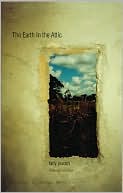 Joudah’s The Earth in the Attic (2008), winner of the Yale Younger Poets prize, is a book about life in exile, life as exile. The son of Palestinian refugees — refugees twice over — Joudah’s lyric territory is the exilic subjectivity, and his style is a blend of the hard-edged witnessing of a Forche with the dreamlike evanescence of a Darwish (whose poems he translates brilliantly). The sort of book that shows its textures and layers after re-reading — I’m tempted to say the way in which a seemingly wild landscape comes to reveal evidence of human habitation only after careful attention. Joudah composes a narrative poetry that defies the linearity of dull narration; instead, his is a braided technique, full of returns, fragments, and veerings-off before returning to lost places.
Joudah’s The Earth in the Attic (2008), winner of the Yale Younger Poets prize, is a book about life in exile, life as exile. The son of Palestinian refugees — refugees twice over — Joudah’s lyric territory is the exilic subjectivity, and his style is a blend of the hard-edged witnessing of a Forche with the dreamlike evanescence of a Darwish (whose poems he translates brilliantly). The sort of book that shows its textures and layers after re-reading — I’m tempted to say the way in which a seemingly wild landscape comes to reveal evidence of human habitation only after careful attention. Joudah composes a narrative poetry that defies the linearity of dull narration; instead, his is a braided technique, full of returns, fragments, and veerings-off before returning to lost places.
So what exactly is “the earth in the attic”? In his poem “Along Came a Spider,” it references those early morning moments where the earth is secured for the spider to create its web, its home-space:
On mornings of this refugee settlement,
After the rain falls in stalks
Of mushroom clouds,
The spiders bloom anywhere there’s a web-hold
And the earth is like an attic.
Like Whitman in “Noiseless Patient Spider,” Joudah sees in the spider the slightly ludicrous figure of indomitable faith of home-seeking in an inhospitable world. In this poem, the “refugee settlement” resonates doubly, as both an African and a Palestinian experience seen simultaneously. This happens elsewhere, hauntingly in “Scarecrow,” as if the poet’s work in Zambia and the Sudan somehow were a repetition of familial history, but, again, the poet is both inside and outside the experience simultaneously—subject to its traumas but at a slight remove. The refugees have “no time to look for anyone,” and are nearly run over by army trucks, yet
Later, they will accuse you of giving up your land.
Later, you will stand in distribution lines and won’t receive enough to eat.
Your mother will weave you new underwear from flower sacks.
And they’ll give you plastic tents, cooking pots,
Vaccine cards, white pills, and wool blankets.
And you will keep your cool.
Standing with eyes shut tight like you’ve got soap in them,
Arms stretched wide like you’re catching rain.
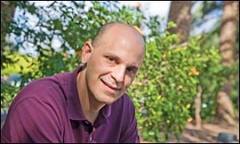 Though the opening of the book focuses principally from the point of view of a doctor treating refugees in Africa (in the harrowing sequence “Pulse”), it is in the second section that the poems deliver that hauntingly palimpsestic traumatic return, how these two conflicts come to resemble each other — though one is widely termed a genocide, and the other something else. Joudah’s ethical delicacy is to avoid “The Name of the Place” (as one poem is called) — but also to refuse to exoticize or reify what Darfur has come to represent in American liberal consciousness. In this refusal of names, he demonstrates a refusal of the gradations of suffering—that some events are tragedies, others atrocities, that some policies are civil wars, others genocides.
Though the opening of the book focuses principally from the point of view of a doctor treating refugees in Africa (in the harrowing sequence “Pulse”), it is in the second section that the poems deliver that hauntingly palimpsestic traumatic return, how these two conflicts come to resemble each other — though one is widely termed a genocide, and the other something else. Joudah’s ethical delicacy is to avoid “The Name of the Place” (as one poem is called) — but also to refuse to exoticize or reify what Darfur has come to represent in American liberal consciousness. In this refusal of names, he demonstrates a refusal of the gradations of suffering—that some events are tragedies, others atrocities, that some policies are civil wars, others genocides.
In her foreword to the book, Louise Glück is astute to say that without violence pressing in on the poems, Joudah might be a nature poet — witness, in particular, the poem “Moon Grass Rain.” But then, he wouldn’t be Joudah either, and I’m grateful, not for the violence, but what he has done with it.
The sudden solidarities between exiled people — whether displaced Arab-Americans or Africans — can be seen in the first poem, where a taxi driver notes that if one sees the hoopoe as a good omen, you are one of us — suggests that identity is fluid, and what we believe can be as important as who we are.
[Published April 15, 2008. 96 pages, $16.00 paperback.]
Philip Metres is the author of To See the Earth (Cleveland State, 2008) Behind the Lines: War Resistance Poetry on the American Homefront Since 1941 (Iowa, 2007). His work has appeared in Best American Poetry and Inclined to Speak: Contemporary Arab American Poetry.
* * * * * * * * * *
Recommended by Ken Chen
Seven Controlled Vocabularies and Obituary 2004. The Joy of Cooking, poems by Tan Lin (Wesleyan)
1. Tan Lin really is a genius. I had once tried to graph the universe of writers with the X-axis being reputation and the Y-axis being quality (as evaluated be an unbiased search committee composed of my brain) and Tan’s coordinates were (4, 1 billion). This indicates that if Tan Lin were a commodity, you should put out a purchase order on him immediately. But Tan Lin is not a commodity so stop dehumanizing him it’s not very respectful.
 2. Like the works of Robert Burton, Geoff Dyer, and W.G. Sebald, Tan Lin’s rolling-around installation-in-pages Seven Controlled Vocabularies and Obituary 2004. The Joy of Cooking produces a whole new way of writing by asking how and why we read. More laughs than Dictee, flatter than Warhol, more gastronomical than Kafka, Lin’s book has the effect of birthing a whole new mode of poetics — one that relies not on either the revelatory moneyshot of anecdotal poetry or the thrusting, anti-absorptive diremptions of langpo, but on a profound, bath-like sense of boredom. If the American pragmatists found the metaphor for philosophy not in the truth-seeking eye but in the action-oriented hand, Tan Lin writes poetry like no one else by writing it like searing steak or soothing wallpaper. I can’t think of a recent poetry book I’ve been more excited about or that I’ve urged other people to read with as much fervor, fun and boredom.
2. Like the works of Robert Burton, Geoff Dyer, and W.G. Sebald, Tan Lin’s rolling-around installation-in-pages Seven Controlled Vocabularies and Obituary 2004. The Joy of Cooking produces a whole new way of writing by asking how and why we read. More laughs than Dictee, flatter than Warhol, more gastronomical than Kafka, Lin’s book has the effect of birthing a whole new mode of poetics — one that relies not on either the revelatory moneyshot of anecdotal poetry or the thrusting, anti-absorptive diremptions of langpo, but on a profound, bath-like sense of boredom. If the American pragmatists found the metaphor for philosophy not in the truth-seeking eye but in the action-oriented hand, Tan Lin writes poetry like no one else by writing it like searing steak or soothing wallpaper. I can’t think of a recent poetry book I’ve been more excited about or that I’ve urged other people to read with as much fervor, fun and boredom.
3. Tan Lin often lumbers up to me like a cuddly sauropod, tall and big-headed, and says things like, “I THINK GERONTION IS ALL ABOUT BACK-DOOR ACTION” or “HAVE YOU EVER THOUGHT ABOUT THE ROLE THAT WASTE PLAYS IN YOUR LIFE.” 7CV broadens the purview of poetry to include what we’d normally think of as waste-language, Google search excretions and corporate non-sentences: it feels like roaming through the slumbering underworld of the fun and idiosyncratic deracinated world of the nonliterary word. This is why, although the book is obviously avant-garde, it’s actually highly personal in the way that our habits, rather than our deepest secrets, are the most personal part of ourselves. Borges wrote that all books were one absolute book and Tan Lin’s book like no other reads like a gloss on the pre-eminent auteur of our age, the World Wide Web. I can’t think of any book that better captures the experience (which is different from the meaning and harder to capture) of being alive after having one’s sense rewritten by the Internet.
[Published February 15, 2010. 224 pages, 100 illustrations, $22.95 paperback.]
Ken Chen’s first book of poems, Juvenilia, won the 2009 Yale Younger Poets Prize . He is the Executive Director of The Asian American Writers’ Workshop.
* * * * * * * * * *
Recommended by Julie Sheehan
Mortal Geography, poems by Alexandra Teague (Persea Books)
Mortal Geography is the perfect title for this first poetry collection by Alexandra Teague. Geography figures large: there are mountain hikes and tours of caves and polar expeditions, train, ferry and bus trips, Bimini, bodies of water, bodies of land. And mortal bodies, our bodies, getting operated on, getting fat, giving birth, praying and dying. We see the logic, and yet “mortal geography,” once paired, makes a lot less sense than the two words do apart. How can geography be mortal? That slippery idea gets at the third and most remarkable aspect of this book, its investigations of how linguistic sleights of hand, particularly in bodies of literature, can both constitute meaning and thwart it.
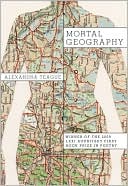 With her musical ear and ease with formal elements in poetry, Teague’s just the person to perform such sleights. Check out “Two Drafts Written After a Fight” — it’s all done with punctuation. “Choose-Your-Own-Adventure Poem” is another nifty trick. You can also check out “Heartland,” which explains the title, but that poem is wisely tucked two-thirds of the way into the book. Don’t read it until you’ve had a chance to develop your own sense of mortal geography. A half-dozen poems approach the slipperiness of language through a classroom where the speaker watches students struggle with English: “you’ll have to trust / not all words will deceive you,” says one teacher in “Explanation to a Student.” In related poems like “Broken Engagement” and “Language Lesson,” the subject is filtered through personal experience. The speaker of “Material” drifts through memories — her mother’s propensity for bizarre-but-true stories, her favorite words as a child, trips to the fabric store—to arrive at the mythological figure of Clothos, the fate who “wove life into being. / From this we get the word fabricate: to make cloth, to lie.” You’ll have to trust the poem, since fabricate does mean both. Sometimes words slip out of our hands because they mean too much in themselves; other times, because of their combinations, as in her title.
With her musical ear and ease with formal elements in poetry, Teague’s just the person to perform such sleights. Check out “Two Drafts Written After a Fight” — it’s all done with punctuation. “Choose-Your-Own-Adventure Poem” is another nifty trick. You can also check out “Heartland,” which explains the title, but that poem is wisely tucked two-thirds of the way into the book. Don’t read it until you’ve had a chance to develop your own sense of mortal geography. A half-dozen poems approach the slipperiness of language through a classroom where the speaker watches students struggle with English: “you’ll have to trust / not all words will deceive you,” says one teacher in “Explanation to a Student.” In related poems like “Broken Engagement” and “Language Lesson,” the subject is filtered through personal experience. The speaker of “Material” drifts through memories — her mother’s propensity for bizarre-but-true stories, her favorite words as a child, trips to the fabric store—to arrive at the mythological figure of Clothos, the fate who “wove life into being. / From this we get the word fabricate: to make cloth, to lie.” You’ll have to trust the poem, since fabricate does mean both. Sometimes words slip out of our hands because they mean too much in themselves; other times, because of their combinations, as in her title.
Words also have the colonizing power of naming, Adam’s power, and the poems that travel, either through a contemporary speaker or a historical figure, point that out. “Hiking Through: The John Muir Trail” observes that “lakes are women. Marjorie. Marie…. The men are talus peaks / and passes.” Sprinkled in are a few ekphrastic poems — why do so many poets write these inevitable fillers? — and some relationship poems, which tend to be slightly less successful. Even in those, Teague’s gift for language shines: “He pours rum and then Coke over ice / which rattles like elegant gravel.” “Elegant gravel” makes as unlikely and assured a combination as Mortal Geography.
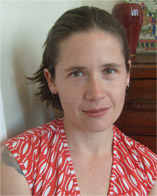 Over the past fifty years, what we’ve called post-modern or experimental poetry tends to be highly formal but joyless, rather like a Tea Party candidate running for office in a government he hates. The postmodern designation tells us the poet is interested in — and suspicious of — the power of language, just as “Tea Party” indicates suspicion of government. Both groups are intent on dismantling the power structure, and so a Susan Howe poem, for example, generates its seeming “nonsense” by repealing laws, usually of grammar. Formalism makes a lot of sense for this project as well. Because the rules of any given form (e.g., the first line rhymes with the third) are so arbitrary, form emphasizes conventions of order even as it deconstructs them. Teague’s up to roughly the same project, but with the refreshing difference: her critique of the “kingdom of language / with its slippery keys” is shot through with awe at its beauty. Nearly every poem in Mortal Geography reminds us that language, like government, didn’t get the way it is solely through human malice, but through invention and imagination. We get what we vote for. Alexandra Teague’s running on the Gorgeous If Fatal platform, as she argues in “By Special Arrangement”:
Over the past fifty years, what we’ve called post-modern or experimental poetry tends to be highly formal but joyless, rather like a Tea Party candidate running for office in a government he hates. The postmodern designation tells us the poet is interested in — and suspicious of — the power of language, just as “Tea Party” indicates suspicion of government. Both groups are intent on dismantling the power structure, and so a Susan Howe poem, for example, generates its seeming “nonsense” by repealing laws, usually of grammar. Formalism makes a lot of sense for this project as well. Because the rules of any given form (e.g., the first line rhymes with the third) are so arbitrary, form emphasizes conventions of order even as it deconstructs them. Teague’s up to roughly the same project, but with the refreshing difference: her critique of the “kingdom of language / with its slippery keys” is shot through with awe at its beauty. Nearly every poem in Mortal Geography reminds us that language, like government, didn’t get the way it is solely through human malice, but through invention and imagination. We get what we vote for. Alexandra Teague’s running on the Gorgeous If Fatal platform, as she argues in “By Special Arrangement”:
… remember this has all been arranged,
though maybe not for us, and maybe by special accident —
a singing telegram of love misdelivered to this city, hardened
as it is against incursions of beauty, though not immune.
[Published April 26, 2010. 88 pages, $15.00 paperback]
Julie Sheehan’s third collection, Bar Book: Poems & Otherwise, was published earlier this year by W.W. Norton.
* * * * * * * * *
Recommended by Rusty Morrison
Pleasure, poems by Brian Teare (Ahsahta Press)
Why am I drawn to elegies? Not for the pathos. I want to read works that resist the common, socially acceptable recounting of loss. Though I also respect the need for this kind of work, for the solace it can offer, which comes in part from the sense of kinship with fellow sufferers. I want a writing that wrests death from the language of agreed-upon experience, a writing that exposes death as the crucible at the core of human existence. In this, there is a sense of commonality, but not one that will bring solace.
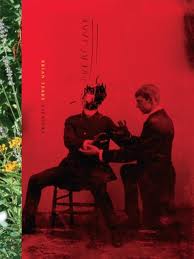 In Denial of Death Ernest Becker describes the essential human dilemma — the existential contradiction — at the core of our nature: we imagine infinity with our minds (our symbolic constructs are endless), even though our physical bodies are food for worms. Much poetry today engages with anxiety, but not necessarily with what is at the root of all fear and anxiety: that we live with the knowledge of impending, perhaps even immediate death —annihilation of all we know — for ourselves and our loved ones. This knowledge is intolerable, so most of us find ways to ignore it. Yet willed ignorance exacts an equally heavy price. Pascal, whom Becker quotes, puts the paradoxical dilemma well: “Men are so necessarily mad that not to be mad would amount to another form of madness.”
In Denial of Death Ernest Becker describes the essential human dilemma — the existential contradiction — at the core of our nature: we imagine infinity with our minds (our symbolic constructs are endless), even though our physical bodies are food for worms. Much poetry today engages with anxiety, but not necessarily with what is at the root of all fear and anxiety: that we live with the knowledge of impending, perhaps even immediate death —annihilation of all we know — for ourselves and our loved ones. This knowledge is intolerable, so most of us find ways to ignore it. Yet willed ignorance exacts an equally heavy price. Pascal, whom Becker quotes, puts the paradoxical dilemma well: “Men are so necessarily mad that not to be mad would amount to another form of madness.”
Brian Teare’s Pleasure is an elegy, but what has been lost, what has been annihilated, is not only the beloved taken by death, but also the speaker’s blindness to the denial that allowed him to live without the awareness, in every moment, of death. Teare faces the facelessness that is our truest madness. At the crux of this crisis, where the Eden of the old symbolic order has failed him, the speaker has found an uncanny, death-evoking sensuality. As Teare tells us in “Dreamt Dead Eden,” “grief breeds meaning / until the small utopias fall … Husband, nothing has touched me like this.” A deepening awareness of death, paradoxically, offers visceral sensation that draws the speaker deeper into the truth and away from the norm of benumbed experience. After the death of the beloved, the “Adam” of his lost Eden, the speaker is no longer able to use the lyric to consort with infinity in the ways that he had in the past. His previous methods of seeking, and of trusting in the validity of seeking solace in the symbolic, have been destroyed. Yet he is cannily aware of his need to return to that denial, to hide in it: “the door warps and on the hottest days / won’t let me out of the lyric, which can’t keep anything / alive.” He writes, even as he elegizes the writing’s lost potency; he suffers the obsessive hold of denial, even as he exposes it as denial. As he speaks to his lost lover, the Adam of his lost Eden, who was the speaker’s first lover: “I author this Eden // to keep you near. Understand? Outside, the real garden / withers too.”
The more believably Teare enacts the ways that this death has ‘deadened’ the lyric for him—has made of the symbolic a lost Eden, a closed garden — the more this writing breathes with an enlivened symbolism of surprising awareness. “Isn’t lyric an attempt // to recreate the conditions / of paradise, the marriage bed // I would not yet give up / to the living? What was ‘pleasure’— // Eden’s root—later became / a ‘hortus conclusus’, a paradise // a closed garden. What once was / free became form, // his death, foretold / by the history of ideas: // as paradise shifted farther offshore …”
Teare is savvy enough to show that no exegesis of death — of its power to subsume the symbolic — can avoid constructing a new kind of deathlessness in its argument, which inevitably rests in the symbolic, which Teare constantly undermines. The cycle is unrelenting: “Was it, Adam, like this // always, intellect in the mind’s small sty / mining confinement for meaning, sleep // to grief as air is to the rain, upon waking, / the world’s own weapons turned against it—“
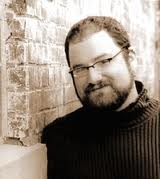 Teare makes the unknowability of death deeply visceral, and gives it shockingly sensual familiarity that a reader can immediately recognize: “what work does death do / in the dark that I haven’t already done? / Tell me : how many times was mystery / dying for it, and each time I went down / on it, didn’t I?….to bury / blood in my mouth and rise up a garden…”
Teare makes the unknowability of death deeply visceral, and gives it shockingly sensual familiarity that a reader can immediately recognize: “what work does death do / in the dark that I haven’t already done? / Tell me : how many times was mystery / dying for it, and each time I went down / on it, didn’t I?….to bury / blood in my mouth and rise up a garden…”
Disparaging — even as he exposes his need for — the lyric’s engagement of the symbolic, Teare nonetheless expresses a insatiable hunger for more of this paradoxical awareness, a hunger that is the impetus of the act of writing itself; as he evokes it, he also elegizes it. And out of this elegy is a writing attuned to life’s complete uncertainty. Uncannily, he offers a “null spun from fog. It’s zero // visibility / to the core, shore an answer precisely beyond the limit / of vision.”
[Published September 15, 2010. 88 pages. $17.50 paperback.]
[Rusty Morrison is a co-founder of Omnidawn Publishing. She received the 2008 James Laughlin Award from the Poetry Society of America for an outstanding second book, the true calm keeps building its story. She recently won the Dorset prize from Tupelo Press which will publish her next book, After Urgency.]
* * * * * * * * * *
Two Titles Recommended by Joel Brouwer
UNION!, poems by Ish Klein (Canarium Books)
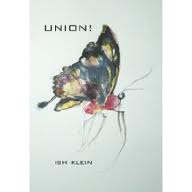 I thought at first that this was an odd book, a slippery book, a book I couldn’t quite figure out, but then I realized that I’ve been returning to it so often, that I’ve been so consistently charmed by it, precisely because I’d already intuitively “figured it out”: The great big important weighty contribution of this book to the distinguished glories of the poetic tradition in English is that it’s fun. Simply and truly fun. There are elements here that will remind you of other modern poets who believe poems should begin in delight and end in yet more delight, including John Ashbery, Charles Simic, James Tate, Kenneth Koch, Tomaz Salamun, Miroslav Holub, Mary Ruefle, and probably above all Frank O’Hara, but Klein’s voice is her own. I’d most like you to read her “The Stuff of Gov’t,” which is both hilarious and deeply dark, but it’s difficult to quote from this poem and many others in a small space because Klein tends to write in long and loose rambles, a form which nicely matches her chatty and associative sensibility. Here instead is “An Institute is Closing,” which will at least give you an idea of the off-kilter pleasures on offer here:
I thought at first that this was an odd book, a slippery book, a book I couldn’t quite figure out, but then I realized that I’ve been returning to it so often, that I’ve been so consistently charmed by it, precisely because I’d already intuitively “figured it out”: The great big important weighty contribution of this book to the distinguished glories of the poetic tradition in English is that it’s fun. Simply and truly fun. There are elements here that will remind you of other modern poets who believe poems should begin in delight and end in yet more delight, including John Ashbery, Charles Simic, James Tate, Kenneth Koch, Tomaz Salamun, Miroslav Holub, Mary Ruefle, and probably above all Frank O’Hara, but Klein’s voice is her own. I’d most like you to read her “The Stuff of Gov’t,” which is both hilarious and deeply dark, but it’s difficult to quote from this poem and many others in a small space because Klein tends to write in long and loose rambles, a form which nicely matches her chatty and associative sensibility. Here instead is “An Institute is Closing,” which will at least give you an idea of the off-kilter pleasures on offer here:
I’m not in with this mystery. Somebody steady me.
Cool ocean breezes don’t make me laugh.
I’m in with noisy metal little nils. A million apologies.
I must have made more.
You were sensitive, you needed them
No you weren’t and you didn’t. In fact . . . oh forget it!
In the middle of the ocean reflected with the moon,
good place to show; probably no one knows you there.
Your leaving, the thrown rope up to sky, climbed up for real goodbye.
I realized my reason insufficient; you must have considered this.
How my specific lean to you smelled like an old paper cup
of funny water and you were not very thirsty.
You came unbidden initially and often.
A field and flickering wicks of foxes from here to there. You.
Holding Hell at bay. Back to ground,
I see you on the moon with your mirror
catching action on the parallax.
Some kind of wise guy.
[Published April 1, 2009. 96 pages, $14.00]
Pleasure, poems by Brian Teare (Ahsahta Press)
I’ve long been fascinated by the conventions of the elegy, and particularly interested in how modern poets handle (or fail to handle) mourning in the aftermath of reports of the death of God. If there’s no consolation in the thought of heaven, is there any to be had at all? In my opinion, no. But even those mourners who claim to be free of spiritual illusions sometimes can’t help but wish for some form of solace. Beckett’s “I can’t go on, I’ll go on,” often cited as an example of existentialist despair, has always sounded to me like a kind of religious expression.
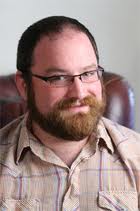 Brian Teare (b. 1974) was raised a Catholic, and the first poets his professors introduced him to were the Confessionals and their progeny. He had, then, early and formative exposure to two robust systems for dealing with grief, one ancient and religious, the other contemporary and secular. Coming out as a gay man in 1992 entailed his dismissal of the former, and coming into aesthetic consciousness of postmodernism’s distrust of language’s capacity for mimesis caused Teare to lose faith in the latter. In 1999, not long after Teare had joined the ranks of the less deceived, his lover died of AIDS.
Brian Teare (b. 1974) was raised a Catholic, and the first poets his professors introduced him to were the Confessionals and their progeny. He had, then, early and formative exposure to two robust systems for dealing with grief, one ancient and religious, the other contemporary and secular. Coming out as a gay man in 1992 entailed his dismissal of the former, and coming into aesthetic consciousness of postmodernism’s distrust of language’s capacity for mimesis caused Teare to lose faith in the latter. In 1999, not long after Teare had joined the ranks of the less deceived, his lover died of AIDS.
Teare’s Pleasure is a fascinating example of what happens when a poet who doubts language’s ability to represent experience, and rejects all codified systems of consolation, desperately needs to represent and make sense of his grief. There are here both aridly objectivist poems which seek to theorize mourning, and vividly lyrical poems which seek to mourn. The pleasure in Pleasure comes from its friction.
By the end, breath required not even a mouth. Yes
they had to cut your throat, but don’t worry I am
making is beautiful, the tracheotomy’s puckered
flesh a flower, your voice drawn out by a thread
honeysuckle giving up its pistil. This is not just
my need to control the image : I author this Eden
to keep you near. Understand? Outside, the real garden
withers, too; the door warps and on the hottest days
wont’ let me out of the lyric, which can’t keep anything
alive. I’ll tell you how I feel : fuck the real. When I write
butterfly, it’s not ironic. It’s a sweet name for a needle.
[Published September 15, 2010. 88 pages. $17.50 paperback.]
Joel Brouwer’s third book of poems is And So (Four Way Books, 2009). He teaches at the University of Alabama and is the recipient of a 2010 Guggenheim Fellowship.
* * * * * * * * * *
Recommended by Elaine Sexton
Where I Live, New and Selected Poems, 1990-2010, by Maxine Kumin (Norton)
If you enjoy the twist of having a metaphoric rug pulled out from under you in shapely, sonically charged narratives, Maxine Kumin’s Where I Live, New and Selected Poems will not disappoint. I should have known better than to fall for the bait reading, “The Whole Hog,” one of the recent poems, savoring the “boneless pork / tenderloin that you’d roll in a floured / paste with cracked pepper and rosemary / before you roast it in a hot oven,” served with “homemade pear chutney,” only to be blasted in the second stanza with “twenty wet / pink piglets squirming out / of the sow’s vagina while she is trapped / in a farrowing crate so narrow that….” Bang. That’s Maxine Kumin.
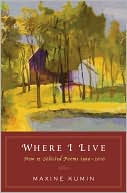 Her source material has long been a searing blend of the domestic and the political, mining her intense affinity with the earth and the creatures she shares it with: horses, dogs, porcupines, and the larger world of her fertile imagination, an ongoing reckoning of matters familial and global. Her recent work exposes an ever-present righteous indignation as the speaker faces down death and the passage of time, sharply so, as in a poem that chronicles the need to euthanize a beloved horse: “rocking my grief back and forth over this kind of death / the taste of apple wasting in his mouth.” In another, “Winter’s Tale,” the knock of an orange dropping to the floor in an upstairs study, seeds a riff on the life of a 40-year-old dwarf tree, its “bitter progeny,” and a time when “life was bleak and sweet.”
Her source material has long been a searing blend of the domestic and the political, mining her intense affinity with the earth and the creatures she shares it with: horses, dogs, porcupines, and the larger world of her fertile imagination, an ongoing reckoning of matters familial and global. Her recent work exposes an ever-present righteous indignation as the speaker faces down death and the passage of time, sharply so, as in a poem that chronicles the need to euthanize a beloved horse: “rocking my grief back and forth over this kind of death / the taste of apple wasting in his mouth.” In another, “Winter’s Tale,” the knock of an orange dropping to the floor in an upstairs study, seeds a riff on the life of a 40-year-old dwarf tree, its “bitter progeny,” and a time when “life was bleak and sweet.”
Kumin opens this, her 17th volume of poetry, with the glistening title poem, showcasing her tight rein on tart lines. The implied “now” in the title is palpable. She pairs a sequence of heavily stressed words in short jewel-like couplets that visually and sonically tumble around in your mind’s mouth, so much so you want to move your lips to let them out. Here’s the second portion of it:
clots of ovoid scat
butternut-size, milky brown
announce our halfgrown
moose padded past
into the forest
to nibble beech tree sprouts.
Wake-robin trillium
in dapple shade. Violets,
landlocked seas I swim in.
I used to pick bouquets
for her, framed them
with leaves. Schmutzige
she said, holding me close
to scrub my streaky face.
Almost from here I touch
my mother’s death.
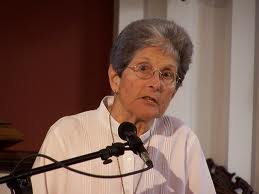 This poet is the master of internal rhymes, slant rhymes and chimes. As with trillium and swim in, using it to stitch together subtle, visceral connections between words like framed, leaves, death, and streaky face, Schutzige and touch. As long time readers know, this is just a part of her highly individuated style that is at once formal and colloquial.
This poet is the master of internal rhymes, slant rhymes and chimes. As with trillium and swim in, using it to stitch together subtle, visceral connections between words like framed, leaves, death, and streaky face, Schutzige and touch. As long time readers know, this is just a part of her highly individuated style that is at once formal and colloquial.
Any new and selected offers a chance to revisit or discover previously published work, and in this case it’s a pleasure to find recent favorites like the not-to-be missed “Jack” and “Looking Back in My Eighty-First Year.” She closes with “Death, Etc.” — typically Kumin, even in the title, we take in her wry and unvarnished self-assessment, the voice of a vital, unflappable poet, facing her fears and still fierce at age 85.
[Published April 4, 2010. 235 pages, $29.95 hardcover.]
Elaine Sexton’s poems and reviews have appeared in American Poetry Review, Art in America, Poetry, Pleiades, Oprah Magazine and elsewhere. Her most recent collection of poems is Causeway (New Issues, 2008).
* * * * * * * * * *
Recommended by Todd Boss
Come on All You Ghosts, poems by Matthew Zapruder (Copper Canyon)
Forgive me, I have not read Matthew Zapruder’s Come on All You Ghosts, only my version of Come on All You Ghosts by Matthew Zapruder. Still, I can tell you what I have learned by reading my version of Come on All You Ghosts by Matthew Zapruder, in hopes of learning, by that process, more about Matthew Zapruder’s Come on All You Ghosts.
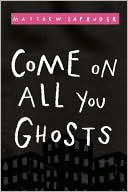 Now and then I will read a poem that is so outstanding for some particular reason, it inspires me to re-write a particular poem of my own. Reading Zapruder’s poems inspires me to re-write all my poems, burn existing copies of what doggerel I have written so far, and set out into the snow in search of my real inner poet, long escaped, that wolf-boy in skins, mumbling excellent raw nonsense.
Now and then I will read a poem that is so outstanding for some particular reason, it inspires me to re-write a particular poem of my own. Reading Zapruder’s poems inspires me to re-write all my poems, burn existing copies of what doggerel I have written so far, and set out into the snow in search of my real inner poet, long escaped, that wolf-boy in skins, mumbling excellent raw nonsense.
Zapruder’s poems are filled with sentences that reconsider themselves, like this one, from “The Prelude”: “Oh this Diet Coke is really good, though come to think of it it tastes like nothing plus the idea of chocolate, or an acquaintance of chocolate speaking fondly of certain times it and chocolate had spoken of nothing, or nothing remembering a field in which it once ate the most wondrous sandwich of ham and rustic chambered cheese yet still wished for a piece of chocolate before the lone walk back through the corn then the darkening forest to the disappointing village and its super creepy bed and breakfast.”
Or this, from “They”: “I remember the house where I first lived, it was small and wooden and next door to a loud friendly catholic family whose three sons Andy and something and something else constantly with mysterious lack of effort flicked an orange basketball through a rusty hoop and one afternoon taught me duh.”
Zapruder’s motto should be three lines from later in that poem: “There’s no way to talk about it except maybe right now.” My motto, I mean. I’d like to learn the way Zapruder constantly with mysterious lack of effort realizes things, or I mean hopes to realize things, or I mean unrealizes them as he does.
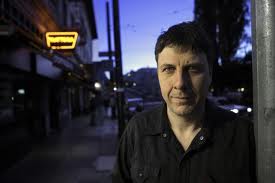 I want to learn from Zapruder uncertainty. The sentence is itself a journey; the sentence is itself an evolution; no, the sentence is squirming, unhappy with itself. In a poem called “The Painted Desert,” which takes place in a highway rest area, Zapruder writes: “Part of me is always about to turn in a direction I will never go.” And so am I, his reader; and Zapruder must prefer it so — to steer me through his poems’ reconsiderations backwards.
I want to learn from Zapruder uncertainty. The sentence is itself a journey; the sentence is itself an evolution; no, the sentence is squirming, unhappy with itself. In a poem called “The Painted Desert,” which takes place in a highway rest area, Zapruder writes: “Part of me is always about to turn in a direction I will never go.” And so am I, his reader; and Zapruder must prefer it so — to steer me through his poems’ reconsiderations backwards.
For that reason, and others, his poetry is a thrill. The book consists of four sections of poems, leading up to a fifth five-part suite, the title poem. About the title poem I have only this to say: It should have been read at Obama’s inauguration, or it should be read at Sarah Palin’s (“I myself am suspicious and cruel”):
the mysteries
the mysteries
we could never have predicted
they become our lives
and less confused
calmly in them
we rotate not psychotic or tragic.
I have lived in the black crater
of feeling every moment
is the moment just after
one has chosen forever
to live in the black crater
of having to live in the black crater
and therefore I know
exactly why David Foster Wallace
took his life away from himself
even though he was also taking it away
from everyone he knew.
This morning I was woken
by soft sour breath
a slight fleck of metal
in the organic
like a field of titanium gravestones
growing warmer in the sun.
I could breathe it for hours
but now it is gone
which is ok as long as the exhaling
somewhere else continues.
Her job is to incrementally
regulate the conduct
of those who regulate
the city and mine is to be
happy for a few moments thinking
I could actually be
one who is happy watching
afternoon fog pour
predictably down
into sunny Noe Valley
from cold Twin Peaks.
[Published August 31, 2010. 96 pages, $16.00.]
Todd Boss’s first poetry collection, Yellowrocket (W. W. Norton, 2008) will be followed by Pitch (Norton) in February, 2012. His first evening-length libretto, Panic, a verse-retelling of Knut Hamsun’s 1894 novel Pan, will premiere in Boston in Winter 2011-12. He is co-founder of Motionpoems, a big-screen poetry film initiative at www.motionpoems.com.
* * * * * * * * * *
Recommended by Robert Cording
Heaven and Earth Holding Company, poems by John Hodgen (University of Pittsburgh Press)
Every writer wants to get the strange kaleidoscopic world of ten thousand things into their work; few succeed. But John Hodgen’s Heaven and Earth Holding Company delivers that entirety in poem after poem —sun, rain, baseball, Frost and Shakespeare, the birth of a granddaughter, Abraham Lincoln, W.C Fields, saints, dogs, lovers, Viagra, Motel 6, those beeping airport carts. Hodgen’s long-lined poems are propulsive, his sentences hypotactic, muscular, alliterative, as in these lines from “Killing Mice, December”:
when I went to pick up the trap, my hand arched widely
over it, like some little rainbow, some lavish god, the mousetail drooping, Poe’s pendulum,
spent, as I dangle it, without touching it, over the Glad bag, drop in inside with a plop.
I have read The Plague, know my rats, ersatz, my mycenaeum, know Hamlet’s Mousetrap . . .
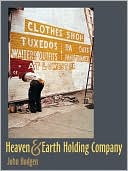 I love the way these poems often start with an attention to language (“The old woman asks if she can have her sunglasses just a tranquil darker”); or exult in the physical properties of words (“each word has its worth, its intimations, each tremulous hem and haw wished / into being like baby wrens, all beats, squawks, then shovel into the coarse air, pushed / hard-loved from their nests, into nothing but hopes of Kitty Hawked flight’); or just enjoy the sheer, lavish play of words (“not stinking Jonathan Edwards Jesus pews, row after row, / on which to squirm, where children would sit, convicted already, ashamed / angels with dirty faces, their little legs dangling like spiders over the flames”).
I love the way these poems often start with an attention to language (“The old woman asks if she can have her sunglasses just a tranquil darker”); or exult in the physical properties of words (“each word has its worth, its intimations, each tremulous hem and haw wished / into being like baby wrens, all beats, squawks, then shovel into the coarse air, pushed / hard-loved from their nests, into nothing but hopes of Kitty Hawked flight’); or just enjoy the sheer, lavish play of words (“not stinking Jonathan Edwards Jesus pews, row after row, / on which to squirm, where children would sit, convicted already, ashamed / angels with dirty faces, their little legs dangling like spiders over the flames”).
If these were just playful, wise-cracking poems they would give us pleasure enough; but Hodgen’s poems fast-break from humor to sorrow and the mortal coils of our lives. The book charts how we live “right in the middle,” between right and wrong, between beauty and terror, between a heaven that is all too earthly and an earth that can be heavenly. The man in these poems knows the foibles of our attempts at loving and living, the beautiful mess of our lives. His art is therefore always aimed at turning “one endless mistake after another,” into the “heart’s true song.”
[Published August 28, 2010. 72 pages, $14.95 paperback]
Robert Cording’s sixth book of poems, Walking With Ruskin, was recently published by CavanKerry Press. He teaches creative writing at the College of the Holy Cross in Worcester, MA and lives in Woodstock, CT.
* * * * * * * * *
Recommended by Leslie Harrison
Horse and Rider, poems by Melissa Range (Texas Tech University Press)
 In Genesis, God grants men dominion over “the fish of the sea, and over the fowl of the air, and over the cattle, and over all the earth.” Melissa Range, who holds a masters in Theology as well as an MFA, seems quite troubled by this passage and the ways it governs our interactions with others here on earth, and with the God who so ordered the world. Her first book, Horse and Rider, opens by considering some of our more questionable partnerships — the canary in the mine, the warhorse — and continues wondering about war, its instruments, its adherents, and the God who not only granted dominion, but also espoused and practiced war and who, in his time, as in the title poem, “has rid the earth of a few more horses, a few more boys.”
In Genesis, God grants men dominion over “the fish of the sea, and over the fowl of the air, and over the cattle, and over all the earth.” Melissa Range, who holds a masters in Theology as well as an MFA, seems quite troubled by this passage and the ways it governs our interactions with others here on earth, and with the God who so ordered the world. Her first book, Horse and Rider, opens by considering some of our more questionable partnerships — the canary in the mine, the warhorse — and continues wondering about war, its instruments, its adherents, and the God who not only granted dominion, but also espoused and practiced war and who, in his time, as in the title poem, “has rid the earth of a few more horses, a few more boys.”
In the same poem, in the line that immediately precedes the line above, Range writes, “He has shown Himself worthy of all our noise.” And if that is true, this book is a troubled, joyful singing to such a God. It makes some of the best noise to come into poetry in a long time. An adept formalist, one whose closest kin date back generations, Range pulls off sonic joy after sonic joy with rhyme, alliteration, metricality, and a clanging, loud, brash noise that seemed to have passed out of poetry.
In “The Arrow,” which opens a section of poems written in the voices of various implements of war (Trebuchet, Bow, Battle Axe, Landmine, Hand Grenade), Range writes:
Bonnie boy, I’ll get beneath your bodice:
I’m the bodkin that flies broad and lodges deep.
Armor up, I’m aiming for your codpiece
With my beak. Your mail’s a lattice I’ll peep
Right through.
The poem, a sonnet, goes on in this often funny, clever way as the arrow imagines the ways it will take a life, and ends with the closing couplet:
You can’t match stick and feather with your arms
I’m the bird superlative, and you’re for the worms.
The boom of all those Bs, the one-syllable rhymes of deep/peep and arms/worms, the sonnet form itself, and the tone, which is cheeky and funny, combine to seem almost old-fashioned, as if Range were unaware of the often subtle or even absent music, not to mention materials, of contemporary poetry.
Of course, she is no such thing. In other poems, she proves herself a master of a quieter, more contemporary music. A poem, late in the book, is titled “Prayer to the Birds,” and opens:
Mockingbird, tanager, thrush—you liltwings,
you hopscotch skippers—forgive us our calling,
noun-bound to be proper, to freight
your pinions with what yokes our weight
to gravity, law, numbers, other fables.
These are rhyming couplets, but a much quieter music often depending on slant rhyme and much less congested with other sonic fireworks. This gives this poem a contemporary, quieter feel. One thing that remains utterly consistent through the book is her refusal to, as many contemporary poets do, twist and lengthen syntax into the worst hypotactic crimes to shoehorn in the rhymes. Her control — of subject, sound, syntax — rarely wavers.
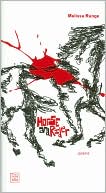 In fact, this book shows extraordinary range (pun intended). From formal to free verse, from loud to soft, from the Bible to Sufjan Stevens, Range covers a lot of ground.
In fact, this book shows extraordinary range (pun intended). From formal to free verse, from loud to soft, from the Bible to Sufjan Stevens, Range covers a lot of ground.
In doing so, she brings something old back into poetry, a stiff wind of rigor — of both thought and craft — a joyful, loud noise, a song of praise if not a song of approval. This is a song of Miriam, who stood on the shores of the Red Sea and sang her gratitude for salvation — “Sing unto the Lord, for he has triumphed gloriously; horse and rider he has cast into the sea” (Exodus 15:21). Range is a modern Miriam, singing of the costs and troubles of war, dominion, and the damages men do. She has taken Pound’s instruction to “make it new” to heart and in doing so has made it not just new, but very good indeed.
(Another highly recommended Walt MacDonald Series winner is 2006’s Burning Wyclif by Thom Satterlee, which swirls around the English translator of the Latin Vulgate Bible, John Wyclif).
[Published March 5, 2010. 69 pages, $21.95 hardcover.]
Leslie Harrison’s Displacement won the Bakeless prize and was published in 2009 by Houghton Mifflin Harcourt. She is the Philip Roth Resident in Poetry at Bucknell University, and lives, when not at Bucknell, in rural western Massachusetts.
* * * * * * * * * *
Recommended by Deborah Woodard
The Morning News is Exciting, poems by Don Mee Choi (Action Books)
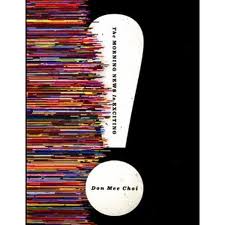 Don Mee Choi recently read from her debut collection The Morning News is Exciting at Open Books in Seattle, presenting sections of different poems without pausing between the excerpts or adding words of explanation at the start of discrete pieces. The result was remarkably seamless, especially for a collection that takes on such diverse topics as Emily Dickinson’s “Master” letters, a journal devoted to the cowry shell, and a Korean instruction manual for women. Perhaps the book can be successfully excerpted in a reading because Choi routinely fragments the emotions and intentions that a more conventional poet would attach to the personae representative of those under patriarchy, imperialism, nationalism and colonialism. We do, in fact, meet the personae, but the point of the poems is not to tell their narratives in an uninterrupted way. Rather, their narratives have been repeatedly interrupted and torn off course.
Don Mee Choi recently read from her debut collection The Morning News is Exciting at Open Books in Seattle, presenting sections of different poems without pausing between the excerpts or adding words of explanation at the start of discrete pieces. The result was remarkably seamless, especially for a collection that takes on such diverse topics as Emily Dickinson’s “Master” letters, a journal devoted to the cowry shell, and a Korean instruction manual for women. Perhaps the book can be successfully excerpted in a reading because Choi routinely fragments the emotions and intentions that a more conventional poet would attach to the personae representative of those under patriarchy, imperialism, nationalism and colonialism. We do, in fact, meet the personae, but the point of the poems is not to tell their narratives in an uninterrupted way. Rather, their narratives have been repeatedly interrupted and torn off course.
Not surprisingly, doubling and containment, two responses to the national schizophrenia of being severed, are frequent motifs in Choi’s work. Korea is divided at the 38th parallel, “the waist of a nation.” At the same time, it was occupied, contained. Images of containment on the micro level run through the book, in the form of zip-lock bags and hygienic precautions that, through the trauma of occupation compounded by cultural prescriptions, become obsessive compulsive:
Squeeze plenty. Girls should. Wash and wash and then write to the world. The news will break. Just wait and see…Girls should. I write to the world. My book is taped up in a box. Wash and wash till the smell is gone, blood is gone. (“The Morning News is Exciting”)
Images of doubling (more schizophrenia?) are also pervasive. A cowry girl has multiple rows of teeth, but her natural defenses turn her into a specimen: “Move gently to and fro…teeth at top and bottom. The repetitiveness and doubletalk. Therefore be considered a synonym.” (“Notes of a Cowry Girl”). Punctuating the book are bits and pieces of theoretical texts (in this case, The Story of Cruel and Unusual by Colin Dayan), of use to the author in the same way as the erasures and homophonic translations used to produce some of the pieces prove helpful. They provide reference points that help clarify the nature of the composition, much as the syllable “jolie” might emerge in a cubist collage to invoke the idea of beauty, suggesting that the viewer might find such an idea relevant to the welter of images. Choi offers the reader the same conceptual shards at key moments in her sequences.
Another instance of doubling — actually triangulation, or more! — occurs in one of my favorite sequences in the book: “Twin Flower, Master, Emily.” Here, Choi audaciously inserts herself, via the Twinflower persona, into Emily Dickinson’s passionate and mysterious “Master” epistles:
Dear Emily,
For poetry — I have you. One need not be a House — One need not be a Nation or a Master for that matter. Delicate and beautiful, common in rich mossy woods, in pairs, we live. We are crimson-pink, particularly in the mountains. The rough terrain is not visible to many, but somewhat green and fatigued, demilitarized! And from far away is hollow. True men — how shall I greet them? Nation building is kind and generous. It is common to decline it. Emily, Shall I—bloom?
Yours, Twin Flower
Choi has bloomed in this book. If you are looking for one of the year’s most startling and original debuts, add The Morning News is Exciting to your list.
[Published June 1, 2010. 120 pages, $16.00 paperback. Available from Small Press Distribition.]
Deborah Woodard’s first collection of poetry is Plato’s Bad Horse (Bear Star, 2006). She is the translator of Amelia Rosselli’s poetry in The Dragonfly: A Selection of Poems—1953-1981 Chelsea Editions 2009).
* * * * * * * * *
Recommended by Aaron Belz
The Seaside!, poems by Heather Christle (minutes BOOKS)
Holding it I feel the way I felt the first time I held a copy of John Ashbery’s Turandot (though I soon had to re-shelve it) — or when, one Christmas, I received Three Madrigals in my stocking. That is to say, to me The Seaside! already feels like a literary artifact of importance, and that is probably mostly due to the esteem with which I have come to regard its author (having devoured her Difficult Farm at a sitting). It is also due to the classy way it’s packaged (friendly sketch on cover, plain sky-blue endpapers) and the lack of pretense with which Christle begins to direct the reader’s attention in the title poem:
This is a wall of great intensity and furious
it kind of hums yellow and hums
green and never shall it hum purple Captain
when will you relieve me The wall
I love at night is huge and warms me
like a caterpillar or a bag but do I also
have a family Captain or is the wall
the only shelter I have known and furious
why and humming brightly why Why
is all the beauty in the wall and not
in me Captain and in you …
How refreshing to discover a poet confident enough to allow one phrase to interlock with the next and never interpose her own opinion! On the other hand, what a relief to read a poet who writes in dream-space and actually makes sense, the kind of sense that draws us magnetically forward. Dreams, we know, often make more sense than reality. Christle’s are real dreams, the ones you hate to wake up from. “The Seaside!” concludes,
Captain you
are studded lines of buttons That is
some finery! Whereas my outfit is it
like a prison with the dimmer switch
turned low No my outfit is nothing
the dimmer switch to nothing But
I can tell you things I’m not a piece of foam
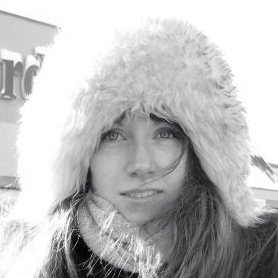 I think that … I imagine that, at least … Heather Christle views her poems as aesthetic objects. Artful. She has a blunt and repetitive way about her, an objectivist way, that reminds me of Gertrude Stein. She is also a control freak who loves to enlarge a poem’s canvas via carefully interwoven movements of tone and visual angle. I think Christle writes the way Stein would have written if Stein had been on Facebook: she composes automatically but is more inveterately social.
I think that … I imagine that, at least … Heather Christle views her poems as aesthetic objects. Artful. She has a blunt and repetitive way about her, an objectivist way, that reminds me of Gertrude Stein. She is also a control freak who loves to enlarge a poem’s canvas via carefully interwoven movements of tone and visual angle. I think Christle writes the way Stein would have written if Stein had been on Facebook: she composes automatically but is more inveterately social.
But I think there’s also a strong moral element in Christle’s poems that’s worth exploring. See the second poem in this collection, “Self-Portrait with Fire”:
They asked me if I was on fire and I said No no no no no no no I did not want to make trouble I was lying I was on fire on my legs and on my hands I was ashamed I tried to hide my legs by kneeling I set the grass on fire …
This strikes me as “moral” in the same way P. T. Anderson’s Magnolia is moral. That is to say, although it’s couched in a thickly constructed verbal texture, it’s also saying something profound about the human condition. I don’t think that it could be entirely by accident, though it is hard to tell how Christle herself feels about such a confession when it ultimately concludes, “I wanted to gnaw and to gnaw on an extra large slice of my likeness” (sans end-punctuation)–a conclusion that combines philosophy, comedy, and pathos in the best James Tate or Russell Edson fashion –but is not particularly moral or spiritual in, say, the Augustinian sense.
Although that question is never clearly resolved (in Christle or Anderson), one might more safely say that these are confessional poems. Yes, that’s right, the c-word. Even if they are automatic printouts of Christle’s wily consciousness, they capture in typography a sequence of her innermost fears and pleasures, sometimes delivered in the same line — her fear of death, for instance, and her delight in projecting (or containing)such a fear in a brightly-lit absurdist dream sequence, as in the end of the third poem, “Teamwork Should Come From the Soul” (she is part of an experiment/performance which will culminate in her death):
I contributed two things My body and the suggestion
that we should maybe try to write it down
When I died it would be the polar bear that got me
I predicted and tried to practice relaxing b/c
I wanted my last feeling to be relaxation
but they said that wouldn’t fit in with the show
That’s a joke, there at the end, but it’s a good one and it’s on the poem’s speaker. Her crackpot polar-bear prediction is also a joke. This is a person who’s only contributed two things to the scientific experiment, her body and a suggestion that someone take notes.
“Taxonomy of That November” is a poem that refers to the word “then” as an animal and kicks it around a bit. I was reminded of Kevin Barnes’ “The Past is a Grotesque Animal”; I was also reminded of John Ashbery’s “He.”
Maybe it would be wise to end on what I believe to be a weaker poem, “Blessings,” if only to qualify the above adulation. It’s weaker in that it fails to cultivate a very interesting rhetoric, it lacks the delightfully unanticipated mental shifts of Christle’s best poems, and it’s about zombies. It would seem better to this reviewer to avoid reference to zombies or “the dead” in a generalized sense unless one is really ready to take on the subject. Safer to stay in the range of odd pleas to seamen, arctic experiments, etc.
This is not to say Christle can’t take on the large-scale subject! Check out “How Like an Island,” which begins, “How like an island we are in love encouraging / moss & like an island we are barely moving Just / to exist takes so much concentration …”
[Published June 20, 2010. 20 pages, $7.00. Limited edition of 60 copies.]
You may purchase one by clicking here.
Aaron Belz is a poet whose second book, Lovely, Raspberry, was published by Persea in June 2010. He lives in Los Angeles.
* * * * * * * *
Recommended by Don Bogen
is music: Selected Poems, by John Taggart, edited by Peter O’Leary with a foreword by C.D. Wright (Copper Canyon)
John Taggart’s is music: Selected Poems is one gorgeous book, from the spare beauty of its cover, through the generous selections from the poet’s fourteen books, right down to the typeface and white space. Rarely have forty years of poetry looked as fresh and energetic on the page–on all three hundred and fifty of them. The poet’s editor and publisher have something to do with this, but Taggart’s dynamism would be unmistakable in any format.
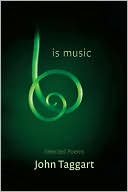 Like C.D. Wright, whose foreword to is music is a poem itself, I first came across Taggart’s work through a haunting longer piece that appeared in Conjunctions in the 1980s. “Marvin Gaye Suite” grabbed me right off the bat with its title, but what carried me through its nine parallel sections of twenty-four end-stopped lines each was the music. Not Marvin Gaye’s–though Taggart engages this richly, along with the singer’s lyrics, his life, and his death at the hands of his own father–but the distinctive lyricism of Taggart’s verse. It’s hard to define his poetic music specifically, except to say that it’s anchored in repetition and variation, that it builds over time, and that it sounds like no one else’s. It’s harder still to cite a passage, as Taggart’s longer poems depend on the accumulating energy of echoes and changes. But I’ll try with some lines from the first section of the work, in which Taggart meditates on a sentence from Gaye’s “What’s Goin’ On”:
Like C.D. Wright, whose foreword to is music is a poem itself, I first came across Taggart’s work through a haunting longer piece that appeared in Conjunctions in the 1980s. “Marvin Gaye Suite” grabbed me right off the bat with its title, but what carried me through its nine parallel sections of twenty-four end-stopped lines each was the music. Not Marvin Gaye’s–though Taggart engages this richly, along with the singer’s lyrics, his life, and his death at the hands of his own father–but the distinctive lyricism of Taggart’s verse. It’s hard to define his poetic music specifically, except to say that it’s anchored in repetition and variation, that it builds over time, and that it sounds like no one else’s. It’s harder still to cite a passage, as Taggart’s longer poems depend on the accumulating energy of echoes and changes. But I’ll try with some lines from the first section of the work, in which Taggart meditates on a sentence from Gaye’s “What’s Goin’ On”:
Marvin calls father father father we don’t need to escalate
Marvin calls out three times to father within the father’s house
isn’t this ironic you probably can’t help but feel superior
calling out three times to father in the house of the father’s voice
listening to Marvin I want to cry it makes me want to cry
like Edgar witnessing the maddened king arraigning his daughters
isn’t this ironic calling to father in the father’s house
another call can he get a witness somebody somewhere
and in the mean time it’s right on baby it’s right on right on
I’m a witness I’ll talk to him so I can see what’s going on
what’s going on party of those gathered brought together for the lay
party of those gathered to be laid by the voice that lays
those who believe that to linger and tarry is to be sheltered
I’ll talk to Marvin I’ll talk to you who have yet to be brought together
what’s going on what’s always going on in the house of the voice.
“The house of the voice” is an apt phrase for Taggart’s own verbal constructions. House-like, they are domestic, purposeful, and made of solid stuff. The words look as common as bricks–the fanciest term in this passage might be “tarry.” But the subtle patterns in the brickwork amaze. Taggart’s rhythms are chant-like yet supple, able to support a range of emotions, from hope and pity to self-rebuke. Key words bounce up against each other sonically and thematically: “father,” “Edgar,” “daughters,” “gathered,” “sheltered,” “together.” On a closer level, Taggart’s ear for the repetition of vowels and consonants–the long os and as, or all those ls, ts and ths, in the last five lines–has the precision and boldness of a great composer. The sounds seem to fall exactly where they should, but the pattern is fresh enough to make you listen in a different way. I’m reminded of Steve Reich or Morton Feldman: Each small gesture stays sharp and deliberate, as the accumulating changes build something profoundly new.
Though Reich and Feldman are in a different vein from the musicians Taggart typically mentions — he is drawn to jazz, soul, and rock from its origins in the fifties to punk–music is a key impetus and theme in his work. No poet handles lines from songs with more imagination. Visual artists are also central, especially R.B. Kitaj and Mark Rothko. “Slow Song for Mark Rothko” with its variations on “To sing as the host sings in his house,” and the dark and powerful “Rothko Chapel Poem” (“No red deeper than red after black / into this red room red after black / from one black room into another / movement from one room to another / one scream the motive for movement”) are among his finest work of the 1980s.
is music is a large enough selection to explore the range and development of Taggart’s achievement over the years: not just his distinctive mid-career work with repetition and variation, but his early Objectivist-influenced studies, and the short lyrics and more fluid extended meditations he has been writing in the last decade. The newest piece in the book, from this year, is a thirty-page poem on Kitaj’s paintings of angels that shows Taggart at the height of his powers. This rich selection of poems also brings out Taggart’s ongoing themes, including not only art and music but the American landscape, ethics, spirituality, and social justice. Now approaching seventy, Taggart is part of a distinguished generation of American poets born during World War II — pre-Boomers, if you will — including Louise Glück, Robert Pinsky, and Robert Hass. is music makes a major contribution to their impressive body of work.
[Published October 10, 2010. 180 pages, $19.00 paperback.]
Don Bogen’s most recent book of poetry is An Algebra (University of Chicago Press, 2009). He is spending winter and spring of 2011 on a Fulbright at the Seamus Heaney Poetry Center.
* * * * * * * *
Recommended by Amanda Auchter
Tongue, poems by Rachel Contreni Flynn (Red Hen Press)
“What she thinks, she thinks alone. Therefore / she unpacks her little girl treasures into the bureau, / twists her hair into a long braid and goes out to walk / in the light and dark woods. She waits on a gray rock / for the story to start: wilderness, mystery, magic” writes Rachel Contreni Flynn in the poem “Story” in Tongue, winner of the 2008 Benjamin Saltman Award from Red Hen Press. Tongue examines the “mystery, magic” of adolescence, family, and in particular, the fierce, tender bond of a sisterhood wrought with grief, illness, and tragedy.
The poems in Tongue are well-crafted lyrics, yes, but what is most fascinating is how Flynn enables the reader to join her speaker on the journey of memory that is told through created myth and bizarre side-stories. Subtle references to Hansel and Gretel appear in this collection as does the story of a human tongue found washed up on the beach when the speaker of this collection stays one summer while helping her dying grandmother. Flynn writes in “Broomstick”:
A witch
pokes her broomstick
from inside
the girl’s chest. It makes
hard spots
of tenderness.
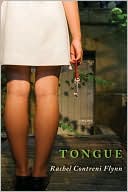 In this, Flynn creates a Brothers Grimm-dark, fairytale world as an artifice to build upon a narrative of familial tragedy and the loss of childhood. The grandmother becomes a witch with a broomstick, a purse full of “Pall Malls and Kleenex” (“Shot of Morphine”), all of which represent not only the speaker’s fear of caring for her grandmother, but her fear of death, of the disasters that she sees brewing out of the corner of her watchful eye.
In this, Flynn creates a Brothers Grimm-dark, fairytale world as an artifice to build upon a narrative of familial tragedy and the loss of childhood. The grandmother becomes a witch with a broomstick, a purse full of “Pall Malls and Kleenex” (“Shot of Morphine”), all of which represent not only the speaker’s fear of caring for her grandmother, but her fear of death, of the disasters that she sees brewing out of the corner of her watchful eye.
This sense of impending catastrophe appears early on in the collection, as in the brief, three line poem, “Hay”: “There’s a blade / in the hay mow // and we’re jumping.” Even in childhood, the speaker can feel the sharp pain of something amiss: the sister who stops eating, the mother who will “fall // to the floor of the Indiana kitchen, never quite / to rise” (“Apart”).
Throughout Tongue, the speaker becomes fearful, then wary of her role in the chaos, wanting on one hand “to lift up, to comfort” her mother and her sister, and on the other craves the “bowl of nectarines. Dragonflies. Sleep” (“Apart”) that children enjoy on their summer breaks. Instead, the speaker experiences “fine cooking, / gentle care of the infirm, resilience in the face // of nightmares.” Here, Tongue becomes a narrative of this resilience, where each moment is a nightmare to be faced, where a witch sits in a corner smoking, watching.
It is interesting to note that as the narrative of Tongue progresses, many of the poems move away from the first-person and create myth out of the use of the third, mainly, the repetition of the phrase “the girl.” At the beginning of the second section, Flynn presents the reader with a preface:
In her twelfth summer, a girl left the Midwest for an island in Main
where her brilliant, ill grandmother lives in a cottage on a pine-rimmed lake.
The girl was to keep house, to keep the old lady company. Back home,
her older sister starved herself. That summer, the island was troubled
by the discovery of a human tongue on the beach.
 This note creates and atmosphere of myth that holds the poems in the collection together. Moreover, both myth and memory can be particularly unreliable, especially in the face of trauma, no matter how tightly one secures herself against it, as Flynn recognizes in “Awake”: “Of course it turns out / the tongue was just // a slice of sea cucumber.”
This note creates and atmosphere of myth that holds the poems in the collection together. Moreover, both myth and memory can be particularly unreliable, especially in the face of trauma, no matter how tightly one secures herself against it, as Flynn recognizes in “Awake”: “Of course it turns out / the tongue was just // a slice of sea cucumber.”
Perhaps the strongest poems in the collection center on the speaker’s sister. “Saint Elizabeth,” the most accomplished poem in Tongue, creates a narrative of the sister as wounded animal, a “scarecrow” who refuses to eat, a “frantic magpie.” Flynn writes in “Saint Elizabeth”:
Even in dreams
I back away.
I forsake her.
I laugh and run.
It is too much. The brightness of her,
and the love.
It is love that tethers the speaker of Tongue to this world of illness, death, and familial discord, and love that carries these lyrical, tightly-woven narratives. Like the tongue that so often bears witness, the speaker in this collection creates her “barricades” from “words” in order to return to the world of the living, “her safety,” where through this resilience, she is “awake. // Vigiliant. Tough as a stump” (“Awake”).
[Published April 1, 2010. 96 pages, $18.95 paperback.]
Amanda Auchter is the founding editor of Pebble Lake Review and the author of The Glass Crib, winner of the 2010 Zone 3 Press First Book Award. She teaches creative writing and literature at Lone Star College – CyFair.
* * * * * * * * *
Recommended by Aaron Baker
Pima Road Notebook, poems by Keith Ekiss (New Issues)
 In literature, “the desert” has long served as both a setting and a metaphor for humanity’s confrontation with the most extreme and elemental hostility of the non-human universe — something to be found in everything from religious texts to Hollywood Westerns. The Sonoran Desert as depicted by Keith Ekiss in his impressive debut collection Pima Road Notebook is in no way less fraught with the mythic dimensions of the desert than its literary precursors (indeed Ekiss is very familiar with this literary/mythic heritage and makes ample use of it), but his perspective adds something quite original: the multidimensional, layered, often very quirky, frustrating, mundane, and heart-breaking experiences of those whose lives take place against this particular geographical backdrop in contemporary America. “The landscape needs few words,” Ekiss tells us, an observation which becomes an aesthetic in Ekiss’s careful, highly-attuned, and precise observations.
In literature, “the desert” has long served as both a setting and a metaphor for humanity’s confrontation with the most extreme and elemental hostility of the non-human universe — something to be found in everything from religious texts to Hollywood Westerns. The Sonoran Desert as depicted by Keith Ekiss in his impressive debut collection Pima Road Notebook is in no way less fraught with the mythic dimensions of the desert than its literary precursors (indeed Ekiss is very familiar with this literary/mythic heritage and makes ample use of it), but his perspective adds something quite original: the multidimensional, layered, often very quirky, frustrating, mundane, and heart-breaking experiences of those whose lives take place against this particular geographical backdrop in contemporary America. “The landscape needs few words,” Ekiss tells us, an observation which becomes an aesthetic in Ekiss’s careful, highly-attuned, and precise observations.
There are five poems in the collection titled “Pima Road Notebook.” Here is the final one:
No one ever told me I belong to the earth.
I changed tribes year-to-year:
Cherokee, Cocopah, Pueblo, Mojave.
Clouds like spirits don’t prove religion.
The distant voice of drums was only thunder.
Wagons circled into track houses.
Cinnamon toast, cold milk, Sunday shirt.
The reservation kept both sides out.
One day we packed up what we owned,
and drove until it snowed.
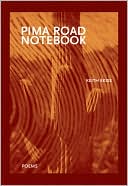 Ekiss’s language shares a stark grandeur with the desert itself, and his poems, like the landscapes they describe, contain many places of intersection and contradiction, places where the natural world in all its threat and splendor comes up against suburban sprawl and the kitsch of consumer culture; where native people rooted to the land come up against “the future all fairway and grain.” Individuals, exemplified by the sensitive and thoughtful poet himself, can only struggle as best they can against the obstacles imposed upon them in this unique environment from both within and without.
Ekiss’s language shares a stark grandeur with the desert itself, and his poems, like the landscapes they describe, contain many places of intersection and contradiction, places where the natural world in all its threat and splendor comes up against suburban sprawl and the kitsch of consumer culture; where native people rooted to the land come up against “the future all fairway and grain.” Individuals, exemplified by the sensitive and thoughtful poet himself, can only struggle as best they can against the obstacles imposed upon them in this unique environment from both within and without.
Many of Ekiss’ poems explore the emotionally complicated experiences of childhood, and perhaps the most poignant contradiction of all to be found in Ekiss’s book is the most irresolvable one of all: that between the landscapes of memory and the present. “Who’s out at all in weather like this?” Ekiss asks. “I idle and wait for the sudden shocks/ the long forgotten emerging as new.”
[Published September 1, 2010. 75 pages, $15.00 paperback.]
Aaron Baker is the author of Mission Work (Houghton, 2008), selected by Stanley Plumly for the Bakeless Prize in Poetry. Originally from Graham, WA, Baker has lived in Mexico, Germany, and Papua New Guinea, where his parents were missionaries. A former Stegner Fellow in Poetry at Stanford, he teaches at Augustana College in Rock Island, Illinois.
Great recommendations!
Thanks for these! There are a couple I have never heard of that I will definitely check out.
And I love Rachel Flynn’s book, Tongue!
Thanks for this list!